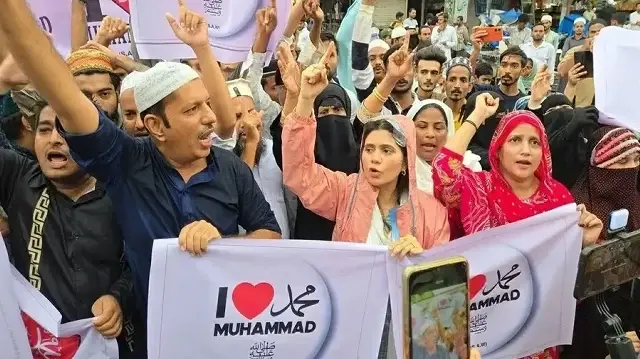Charged for "I Love Muhammad": India's Muslims decry government crackdown on free speech

A growing number of Muslims in India are facing arrest on sedition charges for simply saying "I love Muhammad," sparking outcry over religious freedom and the weaponization of colonial-era laws.
A simple expression of faith has become a criminal offense in parts of India, as a growing number of Muslims face arrest for saying "I love Muhammad" or "I love the Prophet." This crackdown, based on a colonial-era law, has ignited fierce debate over religious freedom, free speech, and the alleged weaponization of the legal system against the minority community.
The Legal Basis: Unpacking the Sedition and Cyber Law Charges
Authorities are using stringent legal provisions to justify the arrests. The primary tool is Section 124A of the Indian Penal Code, which deals with sedition, alleging that the slogan threatens public order. Additionally, Section 66A of the Information Technology Act, which was famously struck down by India's Supreme Court but is reportedly still being invoked, is used to charge individuals for "offensive" online messages. Legal experts argue this represents a dangerous misapplication of laws designed for national security.
Voices from the Community: Fear and a Chilling Effect
Within Muslim communities, the arrests have sown fear and a palpable sense of being targeted. Community leaders and residents report a "chilling effect" on free expression, where people are afraid to voice their religious identity publicly or online. This, they argue, is creating an atmosphere of silent intimidation and marginalization, corroding the secular fabric of the nation.
Government Justification: Maintaining Public Order vs. Silencing Dissent
Government officials and police defend the actions as necessary for maintaining public order. They claim that the slogan, in certain contexts, can be a "code" or a provocation that might incite violence between communities. Their stance is that they are acting preemptively to prevent communal riots and social unrest, prioritizing law and order above individual expressions of faith.
Broader Implications: Free Speech and Secularism Under Scrutiny
Human rights organizations and civil liberty advocates warn that this trend has implications far beyond the Muslim community. They see it as a direct assault on the fundamental right to freedom of speech and expression guaranteed by the Indian Constitution. The situation raises critical questions about the future of India's secular identity and the narrowing space for dissent and religious expression under the current political climate.
Conclusion: A Nation at a Crossroads of Faith and Freedom
As more individuals are charged for professing their love for the Prophet Muhammad, India stands at a contentious crossroads. The outcome of this legal and social battle will significantly define the balance between state security, public order, and the inalienable rights to religious freedom and free speech for all its citizens.
Reklam yükleniyor...
Reklam yükleniyor...







Comments you share on our site are a valuable resource for other users. Please be respectful of different opinions and other users. Avoid using rude, aggressive, derogatory, or discriminatory language.